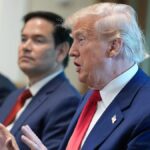In the rush of daily life, between the morning coffee runs and the evening Amazon scrolls, we rarely pause to ask ourselves the uncomfortable question: why do I spend the way I do? Yet this simple act of financial self-reflection might be the most powerful tool in our economic arsenal that most of us never use.
As financial anxiety becomes increasingly common across all income brackets in Montreal and beyond, I’ve noticed a curious trend: those who regularly examine their relationship with money often navigate financial challenges more effectively than those who simply follow stricter budgets. The difference isn’t about spreadsheet skills—it’s about emotional intelligence.
“Financial behavior is 80% psychology and 20% knowledge,” explains Dr. Sarah Newcomb, behavioral economist at Morningstar. “You can understand compound interest perfectly but still sabotage yourself if you haven’t addressed your underlying money beliefs.”
This psychological dimension of finance rarely makes headlines at CO24 Trends, but perhaps it should. When we reflect on our spending patterns, we often uncover surprising motivations—like the discovery that your excessive dining out habit isn’t about the food but about avoiding loneliness, or that your reluctance to invest stems from money scarcity messages you absorbed as a child.
Financial therapist Amanda Clayman suggests starting this process with a simple question: “What’s the earliest money memory that still affects you today?” For me, it was watching my parents argue over bills at the kitchen table, creating an unconscious association between money discussions and conflict that took years to untangle.
These early imprints shape our financial behaviors in ways we rarely recognize. A 2023 study from the Financial Therapy Association found that 73% of recurring financial problems stem from unexamined money scripts—automatic, often inherited beliefs about wealth that operate below our conscious awareness.
Consider the four common money scripts identified by financial psychologists: money avoidance (money is bad), money worship (money solves everything), money status (self-worth equals net worth), and money vigilance (extreme caution with finances). Recognizing which scripts drive your behavior can illuminate why certain financial habits persist despite your best efforts.
The good news? Unlike your credit score, these money narratives can change relatively quickly once identified. Regular journaling about spending decisions, particularly emotional purchases, offers a window into these patterns. One revealing exercise is to list your three largest non-essential purchases from the past month and complete the sentence: “When I bought this, I was feeling…”
The answers often reveal what therapists call “money leaks”—spending patterns driven by emotional needs rather than material ones. This isn’t about judgment; it’s about awareness. Perhaps that impulse purchase provided comfort during a difficult week. The question becomes: are there less expensive ways to meet that same emotional need?
Financial self-reflection also reveals the gap between stated values and actual spending. Many Montrealers I’ve interviewed for CO24 Culture express strong environmental values yet struggle to align their consumption patterns accordingly. This values-behavior gap creates a form of cognitive dissonance that regular reflection can help resolve.
Organizations are beginning to recognize this connection between emotional and financial wellness. Major employers now offer financial therapy as part of employee wellness programs, acknowledging that financial stress significantly impacts workplace productivity and mental health.
For those wanting to begin this practice, financial therapists recommend the “three Ms” approach: mindfulness about spending triggers, meaning attached to specific purchases, and management strategies tailored to your psychological profile rather than generic advice.
The rise of self-reflection practices represents a maturing approach to personal finance—one that acknowledges money as not merely a mathematical equation but a deeply psychological relationship. As we continue exploring this dimension at CO24 Opinions, I’m convinced that financial wellness depends as much on emotional intelligence as economic literacy.
Perhaps the most powerful question we can ask isn’t “How do I make more money?” but rather “Why do I use money the way I do?” In that moment of reflection, we transform from unconscious consumers to financial authors, capable of writing a new money story—one transaction at a time.










